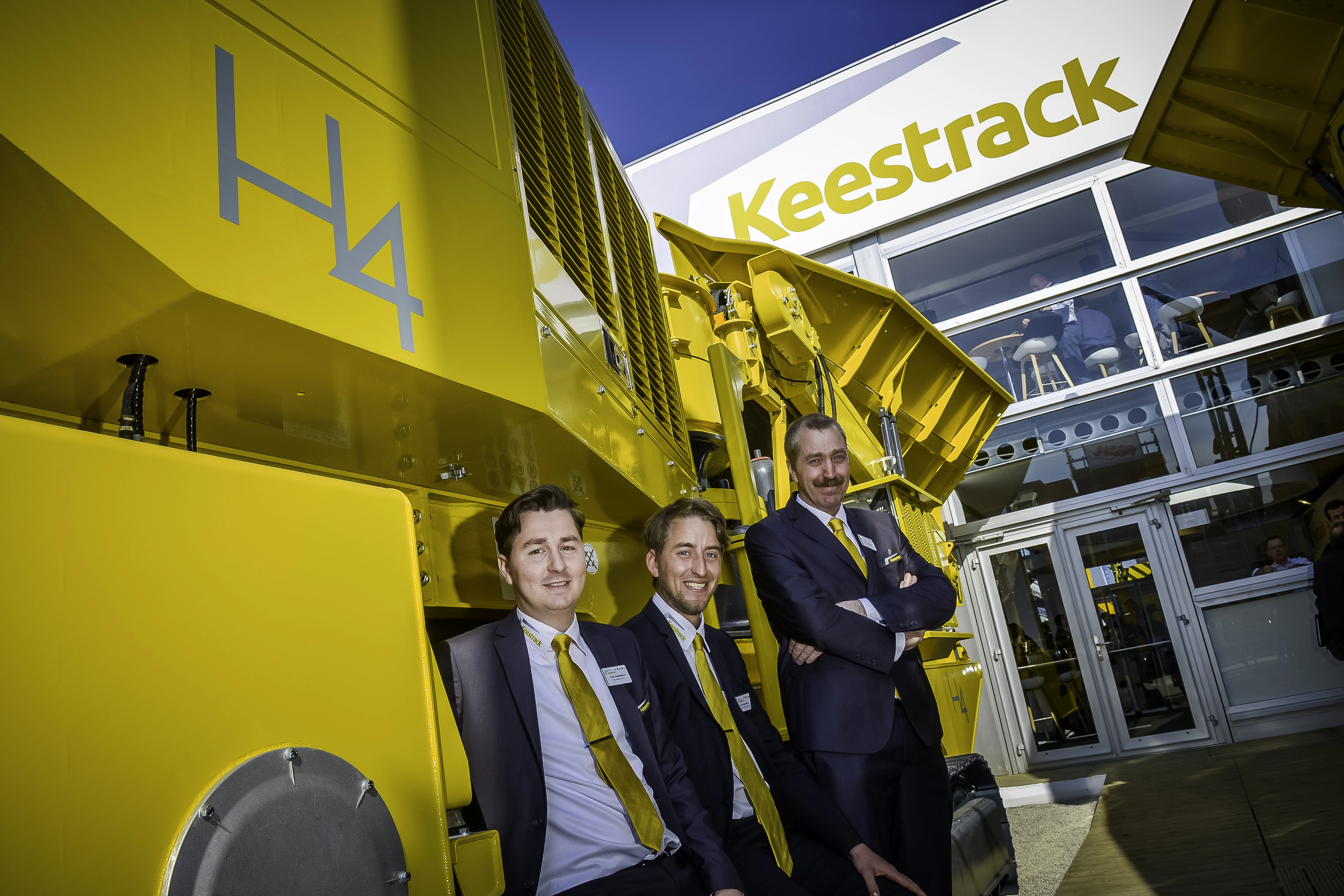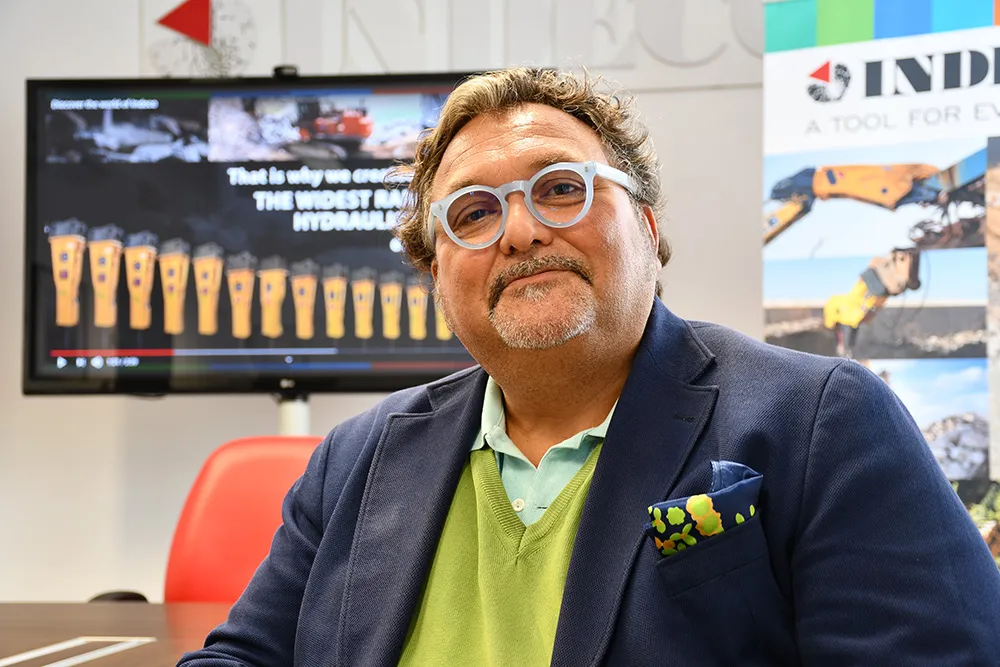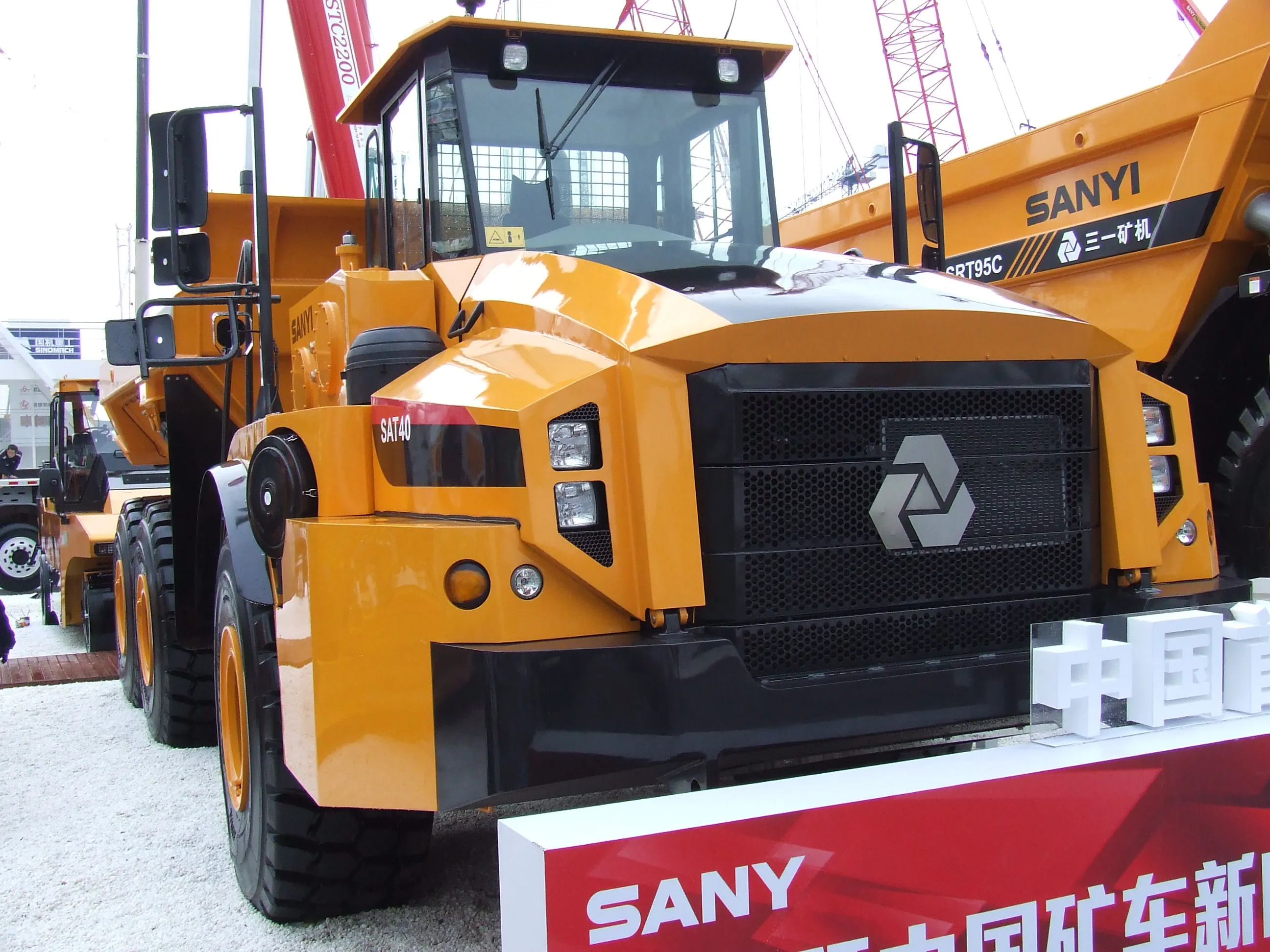
Belgian crushing and screening manufacturer
At bauma the company’s owners and managers - Kees Hoogendoorn, president, and his wife Annet - along with family and employees, toasted a new era. It unveiled a new company logo, new nomenclature, and premiered many new machines and model updates across its entire broad-based programme of mobile processing technology.
The international manufacturer, showing seven track-mounted crushing and screening units, says it is “reinforcing its position as a globally operating full-liner with highly flexible solutions for mineral recycling and the commercial production of stone construction materials”.
Keestrack Group says it has set “a true milestone” with its very first self-developed machine in 1996 - the world’s first directly loadable track-mounted screening plant.
Today’s programme comprises a total of eight coarse-screening and production-screening plants with hourly capacities of up to 800tonnes, which since 2001 have been produced at the Keestrack Group’s own factory in Šternberk in the Czech Republic.
Keestrack is managed centrally from its Belgian headquarters in Munsterbilzen, and it employs a total of around 600 manufacturing staff at three sites: its European factories in Šternberk and Ponzano Veneto, Italy, and since 2007 its Chinese branch in Anhui.
Kees Hoogendoorn said that in addition to the early introduction of low-consumption load-sensing hydraulic modules in all of Keestrack’s mobile diesel driven units, five series of screener units and three crusher models with hybrid or all-electric drive units are already available. The company’s global distributor manager Michael Brookshaw said the rebrand was a momentous event for the company.
“This is the second largest stand for mobile crushing and screening at bauma. This company is growing. Some 80-85% of our business is done in Europe with 15% in other markets. It is one of my jobs to change this,” he said.
The company is promising the introduction of other new models at ConExpo in Las Vegas next year, and is to introduce its Keestrack-er UMTS GPS on-board service support centre, which will be fitted to machines for monitoring.







